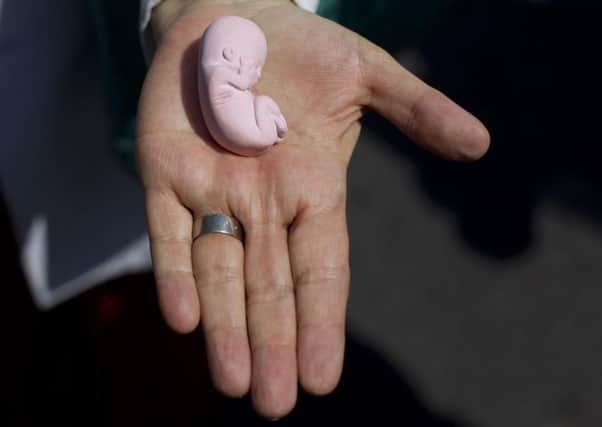September before court will rule on legality of NI abortion law


Attorney General John Larkin QC and Stormont’s Department of Justice are both appealing a landmark High Court verdict that the current near-blanket ban on terminations is incompatible with human rights legislation.
But following four days of arguments the Lord Chief Justice confirmed a ruling on the challenge will have to wait until September at the earliest.
Advertisement
Hide AdAdvertisement
Hide AdSir Declan Morgan told the Court of Appeal: “We will want to reflect on this and we will not give this decision before the beginning of next term.”
Unlike other parts of the UK, terminations are only legal within Northern Ireland to protect the woman’s life or if there is a risk of serious damage to her well-being.
Last year a High Court judge ruled the lack of exceptions to this in cases where unborn children have fatal foetal abnormalities, or in instances where females have been made pregnant through sexual crime, breached Article 8 of the European Convention on Human Rights (dealing with family life).
The legislation was also declared to be incompatible with the UK’s obligations under the Human Rights Act.
Advertisement
Hide AdAdvertisement
Hide AdThe Northern Ireland Human Rights Commission is also mounting a bid to have the regime further declared in breach of Articles 3 and 14 of the European convention (prohibiting degrading treatment and discrimination).
Legal action began after the department launched a public consultation on amending the criminal law.
That concluded with a recommendation for a new law dealing with foetuses with fatal abnormalities – but not covering pregnancies resulting from sex crime.
The Northern Ireland Human Rights Commission insisted the consultation did not go far enough.
Advertisement
Hide AdAdvertisement
Hide AdDuring the legal battle arguments were also made on behalf of Sarah Ewart - a woman from Northern Ireland who went to England for an abortion after learning her unborn baby had no chance of survival.
The court heard claims that the current near-blanket ban is inhuman and discriminatory.
Nathalie Lieven QC, for the Commission, insisted Mrs Ewart is a victim and argued that the court needs to step in to protect those in her position or teenage victims of family rape.
She also claimed there was hypocrisy in the case because the vast majority of women who find themselves in similar situations travel to the UK to have abortions.
“This isn’t about protecting the foetuses,” she contended.
“Get real... the foetuses are being aborted.”
Advertisement
Hide AdAdvertisement
Hide AdBut responding today in the Court of Appeal, the Attorney General argued that only those who carry out rapes leading to pregnancies should face the consequences.
Mr Larkin concluded: “Yes, we must punish and investigate and imprison those who commit that appalling crime, but we shouldn’t take it out on the child where the law doesn’t require us to, nor does the Convention.”